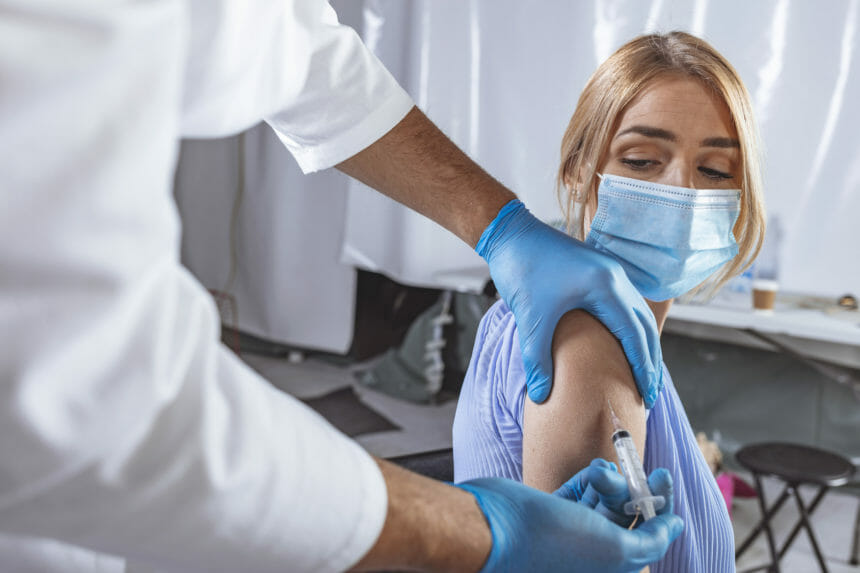
Vaccine hesitancy among staff continues to be a problem with home care agencies and providers of home-and-community-based services (HCBS). But a new report finds that employers of all stripes are “uniquely positioned” to mitigate vaccine hesitancy in a variety of ways.

“There’s a lot of misinformation and still some skepticism that exists,” Parker Wells, Vice President of Santa Ana, CA-based Care To Stay Home, told McKnight’s Home Care Daily.
The business consulting firm McKinsey & Company surveyed 400 companies over the past two months and found employees are receptive to getting vaccinated if their company builds conviction and offers convenience and costless vaccinations.
The report said employers could build conviction by sharing authoritative, credible and accessible information on the safety, efficacy and side effects of available vaccines. It also suggested bringing in experts to discuss immunization with staff.
The report said employers could make vaccinations more convenient by providing details on local vaccination sites and making the process less costly by allowing employees time off to get vaccinated and recover from any potential side effects.
Home care efforts
Wells said his agency has been doing some of the actions the study recommends in an effort to reduce vaccine hesitancy.
“We educate staff on how to sign up for the vaccine,” Well said. “Where possible, we adjust schedules to allow staff to get the vaccine and also plan ahead, knowing there may be those who need a day or two after their vaccine to get back to work.”
Programs for All-Inclusive Care for the Elderly (PACE) have also been working diligently to vaccinate all participants and staff. Shawn Bloom, CEO of the National PACE Association, told McKnight’s Home Care Daily that staff were nearly five times less likely to get vaccinated than PACE clients when the COVID-19 vaccine first became available. But Bloom said that is starting to change.

“Expanded efforts to educate staff are proving effective and in April, programs reported that more staff that had been hesitant had since been vaccinated. It’s been more of a challenge to have staff vaccinations for a variety of reasons, but we are making excellent progress on both fronts,” Bloom said.
Vaccination incentive
In New York City, PACE at ArchCare will reopen all four of its PACE centers in the metropolitan by early May. PACE at ArchCare Vice President Elizabeth Rosado, recently told McKnight’s Home Care Daily, the reopenings could be an incentive to get the 25% of her staff who hadn’t yet been vaccinated to do so.
“If I have a staffer that is not vaccinated, they are not going to be front and center with our participants,” Rosado said.
While vaccine availability has been increasing across the nation, the U.S. Centers for Disease Control and Prevention (CDC) report only about a quarter of Americans have been fully vaccinated so far.


